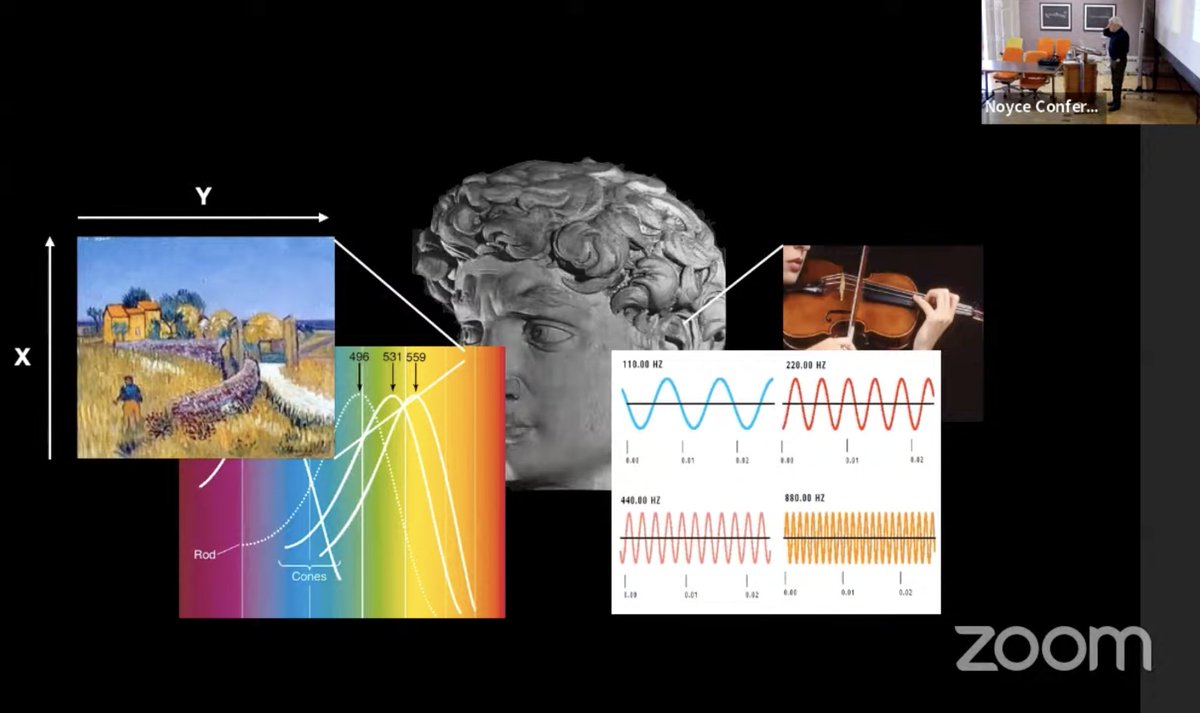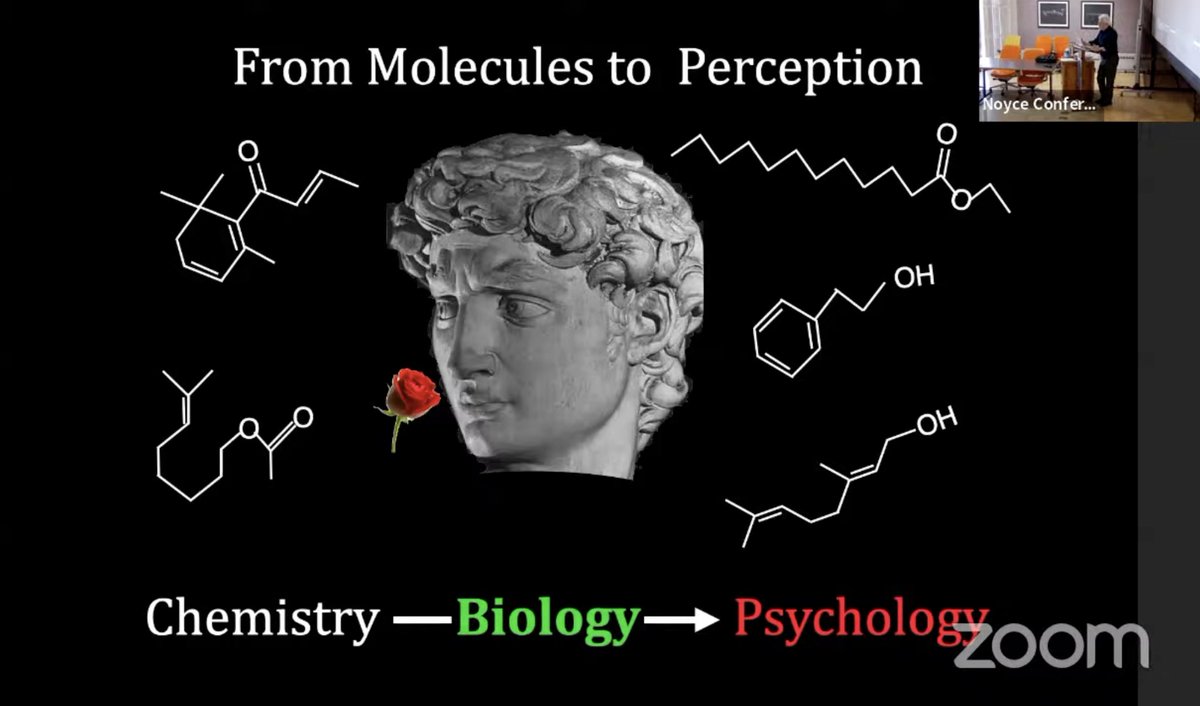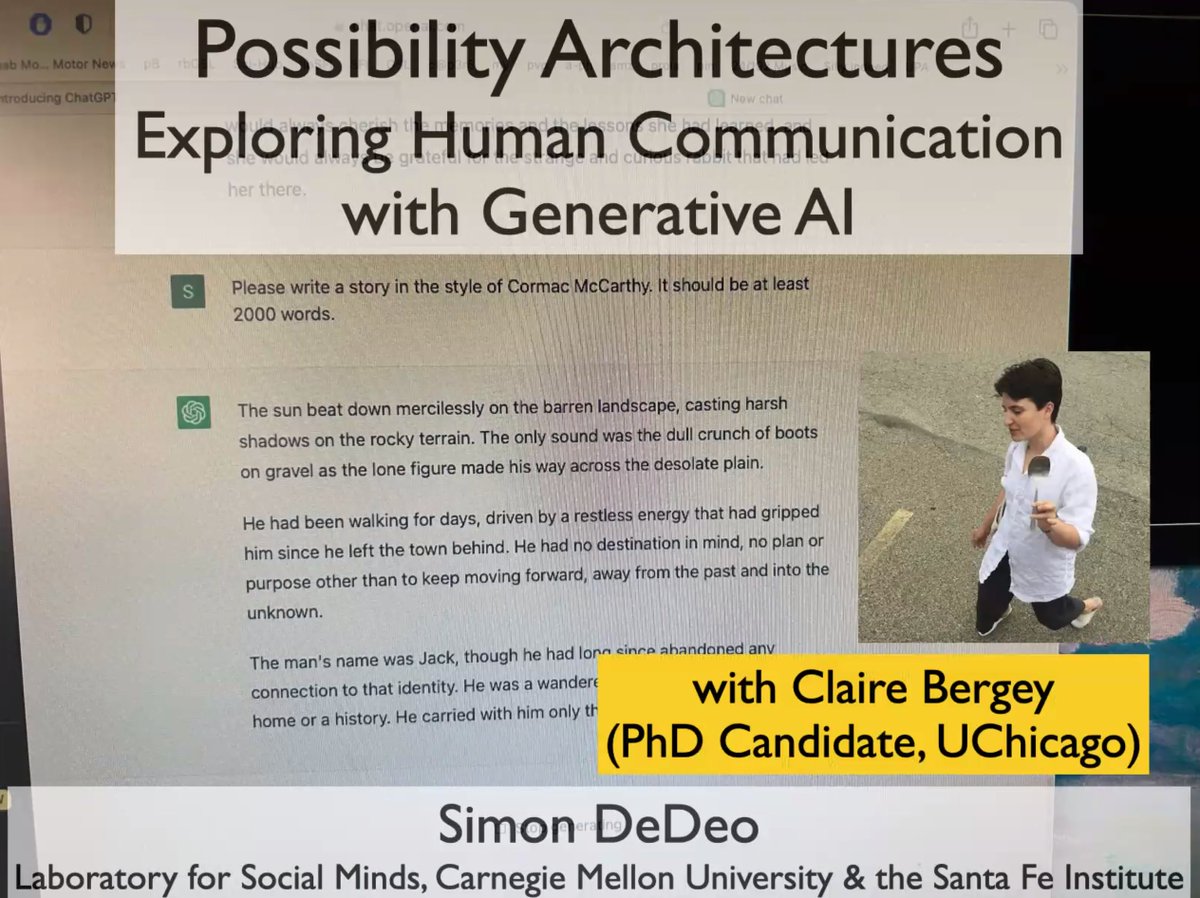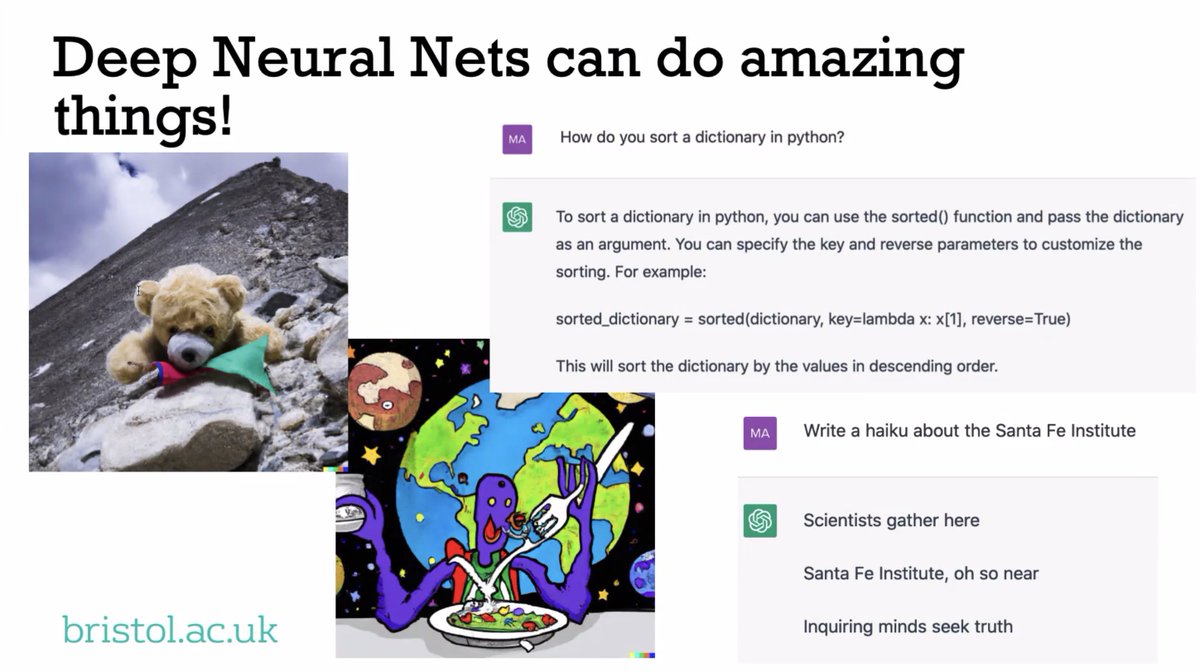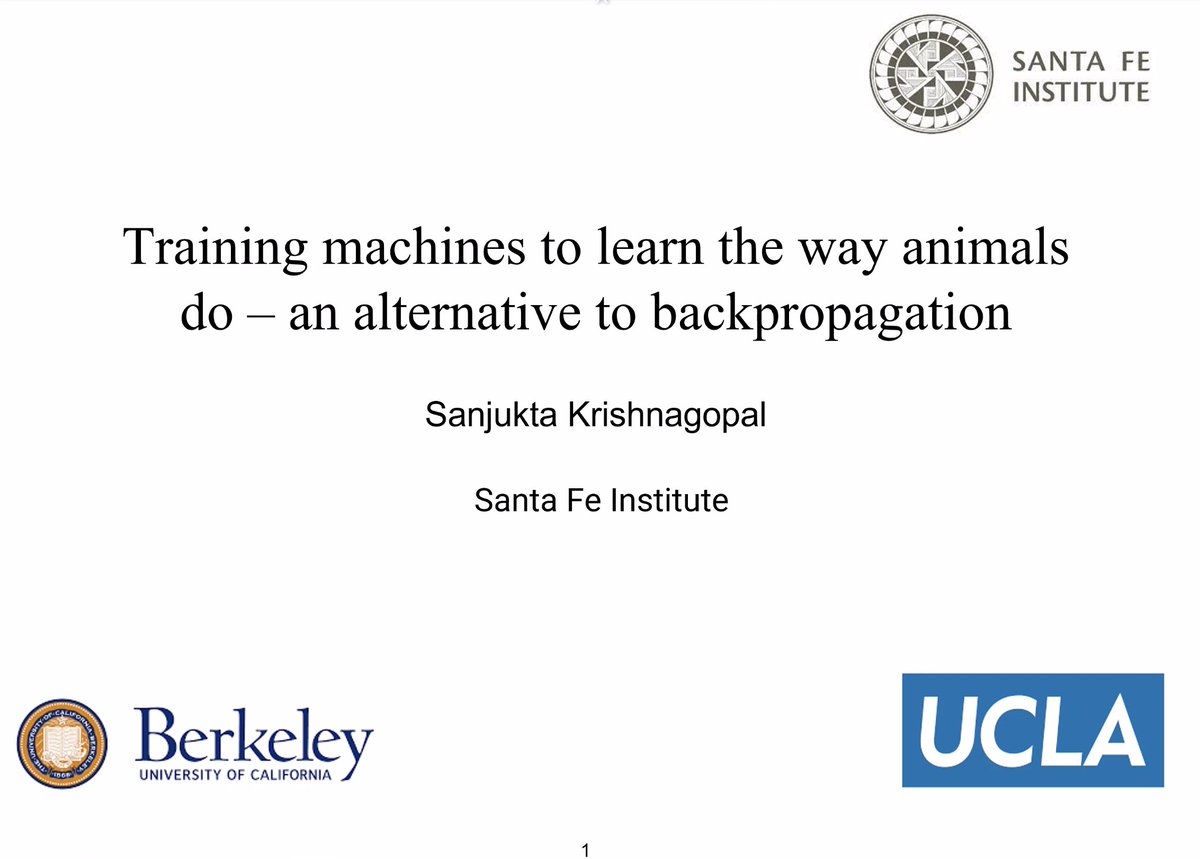"Knowledge Representation in Judgment and Decision Making"
Today's SFI Seminar by @sdpbht (@Penn)
Follow this 🧵 for highlights!
Streaming now:
#knowledge #cognition #behavior
Today's SFI Seminar by @sdpbht (@Penn)
Follow this 🧵 for highlights!
Streaming now:
#knowledge #cognition #behavior

@sdpbht @Penn How do people evaluate potential decisions — the tradeoffs, the risks?
"How do people make assessments, and how can we *improve* those assessments?"
- @sdpbht
AND: What role does #memory (episodic and semantic) play in all of this?
#psychology #taxonomy

"How do people make assessments, and how can we *improve* those assessments?"
- @sdpbht
AND: What role does #memory (episodic and semantic) play in all of this?
#psychology #taxonomy


Categorical thinking empowers inductive #reasoning.
(Here: How does what people know about #dolphins inform the likelihoods they assign to other agents, such as #ET?)
#Cognitive #Psychology
(Here: How does what people know about #dolphins inform the likelihoods they assign to other agents, such as #ET?)
#Cognitive #Psychology

"Psychologists typically build models of cognitive PROCESSES. They oftentimes test these in artificial, highly abstracted laboratory tests, using highly stylized stimuli. But in the real world, when we're choosing or reasoning, we need to apply processes TO CONTENT."
- @sdpbht
- @sdpbht

"This was effectively the foundation of cognitive psychology. The first paragraph from #HerbertSimon's 1979 paper uses 'process' or 'mechanism' five times. It doesn't use 'knowledge representation' AT ALL."
- @sdpbht (@Penn)

- @sdpbht (@Penn)

"Of course, if you need a *complete* theory of human #cognition, you also need to specify how [#knowledge] representations are *acquired*..."
- @sdpbht (@Penn)
#judgment #memory #reasoning
- @sdpbht (@Penn)
#judgment #memory #reasoning

@sdpbht @Penn "How do we start predicting human judgments of the 100Ks of kinds of food out there in the world? First we need to understand how knowledge is represented."
With word vector models.
Landauer & Dumais 1997:
psycnet.apa.org/record/1997-03…
Turney & Pantel, 2010:
arxiv.org/abs/1003.1141?…
With word vector models.
Landauer & Dumais 1997:
psycnet.apa.org/record/1997-03…
Turney & Pantel, 2010:
arxiv.org/abs/1003.1141?…

• • •
Missing some Tweet in this thread? You can try to
force a refresh



